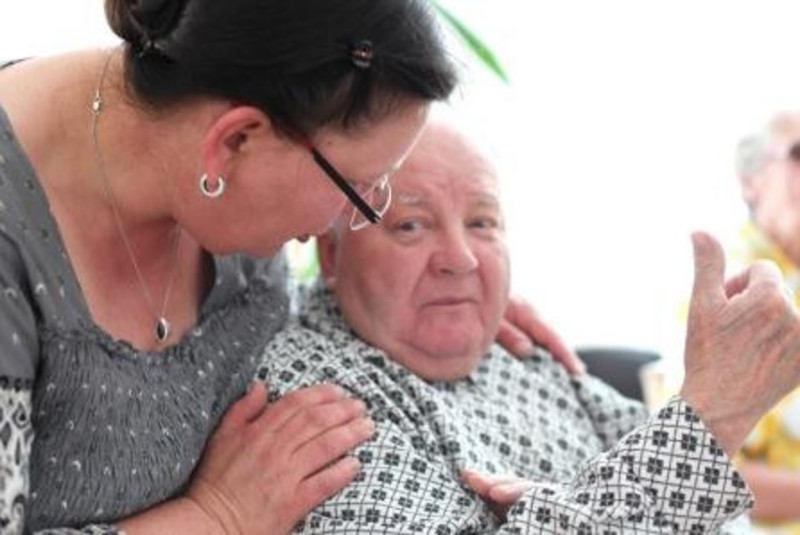A Completely New Approach to Dementia and Disability – Dissertation Awarded Grant for Excellence in Research by the Stiftung Leben Pur – Results Transferable

Hannover/Darmstadt. Education researcher Heike Lubnitz has developed an entirely new approach to dealing with the challenges of dementia and disabilities. Her research was the subject of a doctoral dissertation completed at Leibnitz University in Hannover. The Software AG Foundation provided financial support for the project. What's so innovative about her approach is that it develops education initiatives to provide training for two groups: the staff members of institutions for the disabled, and those who live together with those affected by dementia and disability. Staff and family train together, using the same materials.
Her work is based on a relatively new area of research. One reason for the lack of research in this area was the history of euthanasia in the Third Reich – for a long time, there was simply a lack of experience with this group. On the other hand, advances in medicine as well as, in particular, better living conditions and a higher quality of life have made it possible for people even with severe disabilities to live longer. As the disabled age, however, they face new challenges that they and those around them must master.
“The elderly stage of life of people with intellectual disabilities, and the effects of dementia on them, have in fact increasingly come into focus in research. But to date there has hardly been any research that has examined the position and experience horizon of these people in their social environments or developed concrete solutions”, explained Prof. Dr. Bettina Lindmeier of the University of Hannover, who supervised the PhD.
In the course of her practical research project, Heike Lubitz worked together with three residential facilities to create educational programs for the staff and housemates of people with both intellectual disabilities and dementia. The goal of the trainings is to improve the quality of life and work for workers, fellow residents, and the individuals suffering from dementia. This is achieved through knowledge sharing and the development of problem solving competence in dealing with dementia.
“Including all of the people affected into the training measures is an absolutely necessary innovation, as dementia is perceived to be extremely wearisome and demanding – not only by the individual with the illness, but also by the caregivers and above all by affected people in the person's social environment”, said Lindmeier.
The results of the project demonstrate that with an increase in information and competence, dementia-related conflicts can be reduced or escalate less often, and the entire situation is perceived to be less stressful by all parties involved. “These are very important effects, because they lead to the preservation of social structures”, explains Heike Lubitz. Because of the reduced frequency of escalated conflicts, the quality of life significantly improves for all, and the dementia patients can remain in their familiar settings longer. The dual form of specific training is therefore key. The success of the course also reveals that people with intellectual disabilities show a strong interest in education and a high degree of motivation for training and that their ability to understand abstract content continues to be underestimated. Ideas are currently being developed for how these results could be made available for other organisations and institutions.
“The research project is exemplary because it is scientifically based and practically oriented towards the actual needs of those with dementia and disabilities and their surroundings. At the same time, the developed training program is appropriate for knowledge transfer, in the sense of a best practice model,” said Prof. Dr. Dirk Randoll, who supported the project from the side of the Software AG Foundation.
A summary of the research project is available here (in German)
